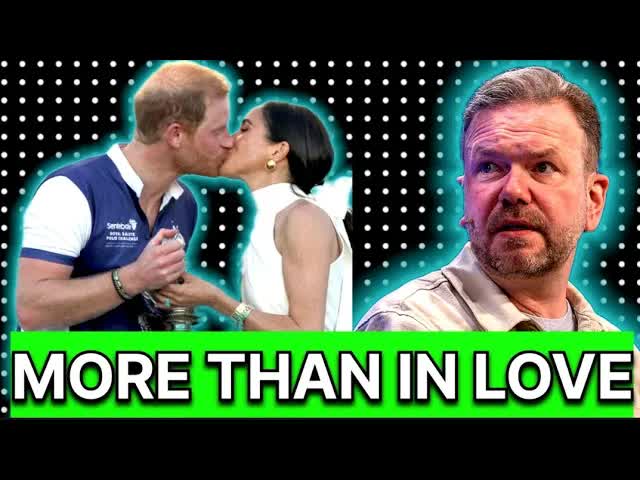The media’s relentless scrutiny of Meghan Markle and Prince Harry has sparked a heated debate about the nature of public perception and the often harsh treatment they receive.
Why is it that some public figures escape this kind of intense criticism, while others are mercilessly hounded?
This question lingers in the air, particularly when comparing the treatment of Markle to that of Kate Middleton, who seems to have enjoyed a less aggressive press narrative.
While the tabloids have certainly taken jabs at Kate Middleton, their approach has been relatively mild compared to the relentless pursuit of Meghan.
Reports on Kate’s lack of a conventional job or her family’s background were more playful than vicious.
In stark contrast, Meghan has faced a barrage of invasive tactics, including attempts to elicit derogatory comments from estranged family members.
The disparity in treatment raises eyebrows and begs for deeper examination.
Some commentators have likened the media’s treatment of Meghan to the sensationalism surrounding other high-profile figures like Britney Spears.
The question remains: what did Meghan do to warrant such hostility?
Many critics seem to suggest that she has somehow dominated Prince Harry, but this narrative appears to be largely unfounded.
It’s akin to watching a friend marry someone who, in your eyes, seems to overshadow them; it’s a narrative steeped in personal bias rather than objective truth.
The notion that Meghan “dominates” Harry often relies on vague assertions rather than hard evidence.
For instance, some claim that Harry deviated from royal protocol due to her influence, citing the absence of traditional photographs following their child’s birth as proof.
But is that really indicative of domination?
Or could it simply reflect a couple choosing to carve out their own path, free from rigid traditions?
Critically, the argument that Meghan exerts control over Harry lacks substantial backing.
While it’s common for people to change when they fall in love, this transformation doesn’t inherently imply one partner’s dominance over the other.
In fact, many would agree that falling for someone can inspire personal growth and positive change.
The recent discussions surrounding their decision to step back from royal duties have only intensified the scrutiny.
Some observers hastily concluded that Meghan must be the driving force behind this choice.
However, such assumptions fail to consider the complexities of their situation and the myriad factors influencing their lives.
This discourse reveals a troubling tendency within society to judge high-profile relationships through a biased lens.
The narrative often shifts to questions of power dynamics, particularly when a woman, especially one as accomplished as Meghan, enters a traditional partnership.
This reflects not only societal prejudices but also a broader discomfort with women asserting agency in their relationships.
James O’Brien, a commentator known for his incisive critiques, recently challenged a caller on these very points.
During their exchange, he highlighted the lack of concrete evidence supporting claims that Meghan dominates Harry, exposing the fragility of such arguments.
This conversation shines a light on how easily narratives can be constructed without factual basis, leading to misconceptions that permeate public thought.
The media’s portrayal of Meghan Markle is emblematic of a larger pattern of gendered criticism that consistently undermines her character.
Where male figures are often lauded for their assertiveness, Meghan is frequently depicted as manipulative.
This double standard not only distorts public discourse but perpetuates harmful stereotypes about women in leadership roles.
Despite stepping away from royal duties in 2020, Harry and Meghan have embarked on a journey of financial independence and philanthropic work.
Their commitment to humanitarian causes through initiatives like the Archwell Foundation demonstrates a genuine desire to effect positive change in society.
Critics may argue that their efforts are overshadowed by personal branding, yet supporters recognize the impact of their work on issues like mental health and racial equity.
As we navigate the complex narratives surrounding Meghan and Harry, it becomes clear that simplistic interpretations often mask deeper realities.
The tendency to cast Meghan as a domineering figure or Harry as a passive partner reveals more about societal biases than it does about the couple’s actual dynamic.
This ongoing saga calls for a more nuanced understanding of the media representation of relationships.
By challenging preconceived notions and fostering critical dialogue, we can move beyond sensationalist narratives and towards a more thoughtful exploration of the intricacies of human connections and individual experiences.
